Abstract
The ethical issues raised by the Human Genome Project (HGP) and by human genetics in general are not entirely novel. In fact, the ethical issues surrounding genetic research and the provision of genetic services fit into the evolution of bioethics, a field of inquiry which has its roots in concerns of the 1970s, concerns about the dignity and self-determination of individuals and about the development of medical technologies. Although bioethics has been largely occupied with patient-centered concerns, attention is currently shifting toward socially oriented issues, such as the justice of the existing health-care system. Genetic counseling has already incorporated many of the lessons of early bioethics and, as a profession, adheres to a consultand-centered ethic which reflects the values incorporated into the doctrine of informed consent, which is a cornerstone of bioethics. The mandate of the Ethical, Legal, and Social Implications Program of the HGP--to anticipate ethical problems arising from advances in genetics and to educate the public about genetics--reflects not only the nonpaternalistic approach of early bioethics but also bioethics' increasing attention to the ethical import of systemic and institutional factors, as well as an anticipatory and preventive approach to dealing with ethical concerns. Because bioethics has so much to contribute to current consideration of ethical issues in human genetics, it is important to provide training in ethics to those working in the field. Guidelines for using a case-oriented approach are suggested.
Full text
PDF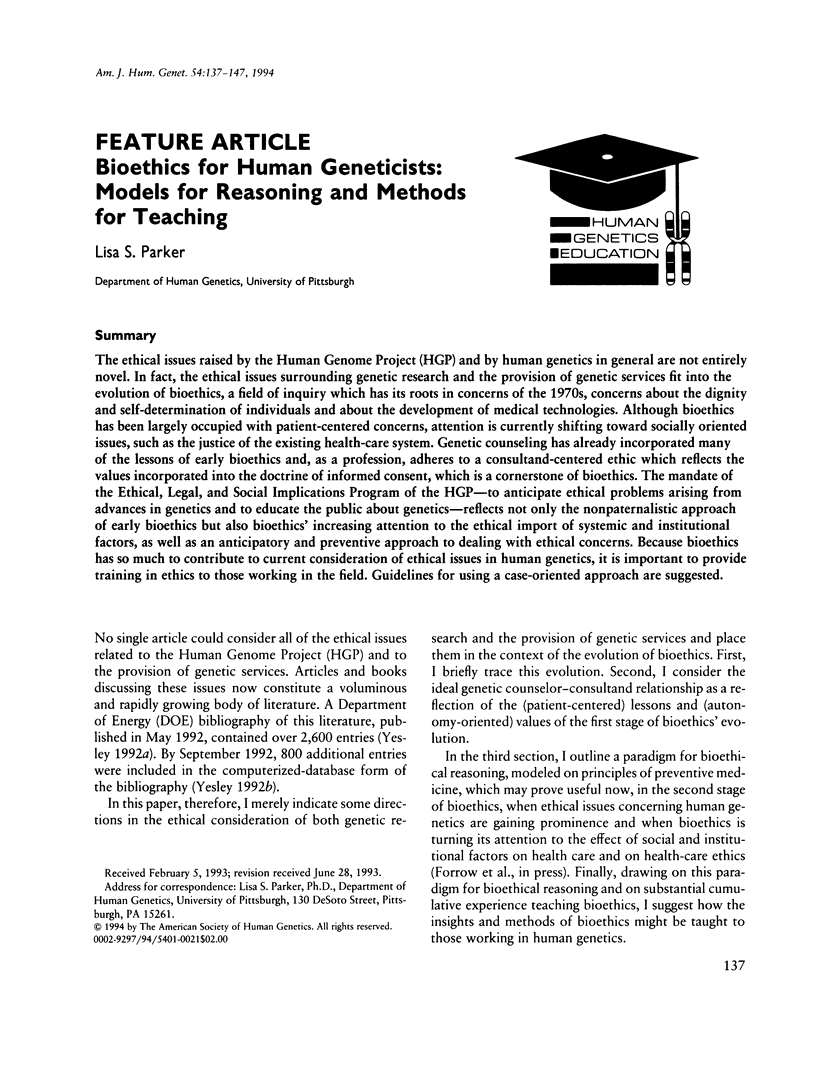
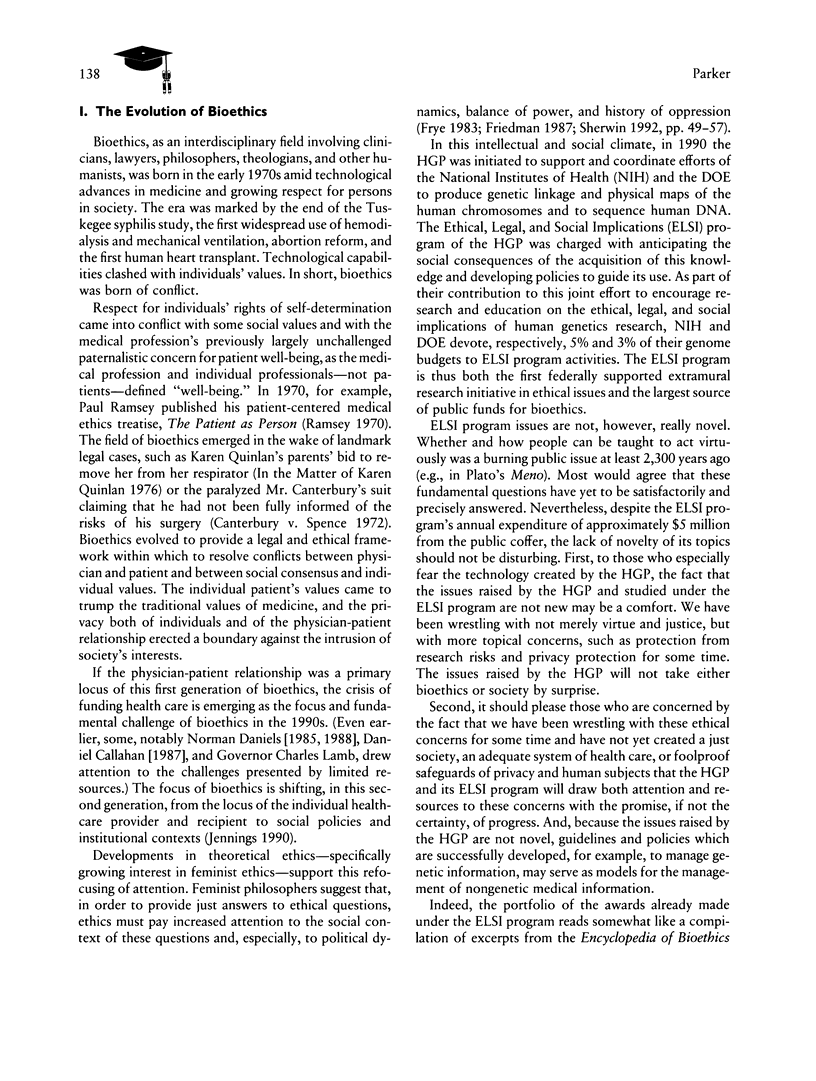
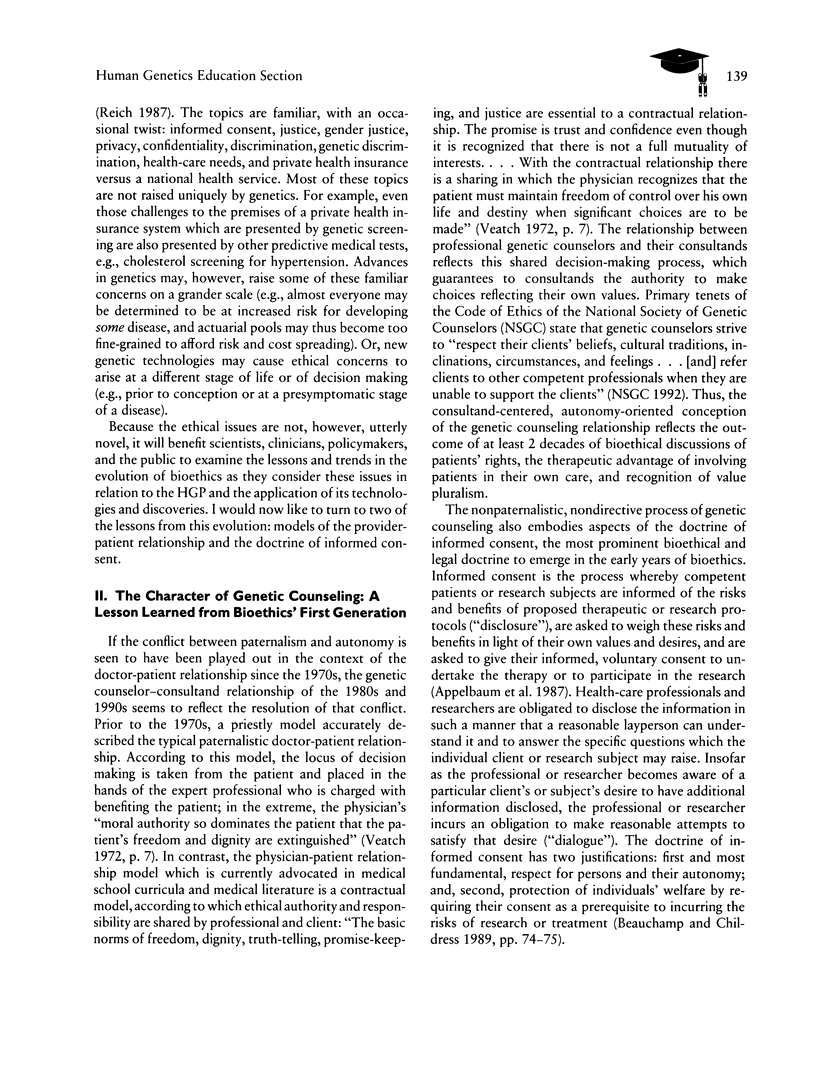
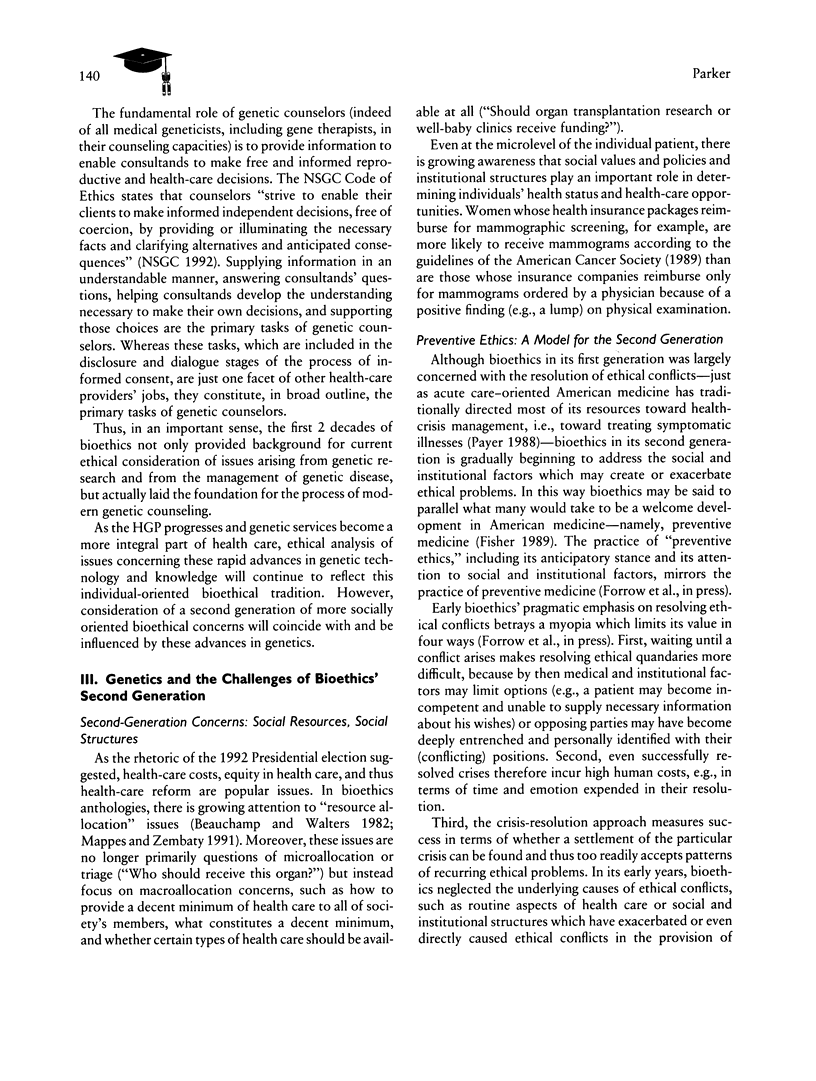
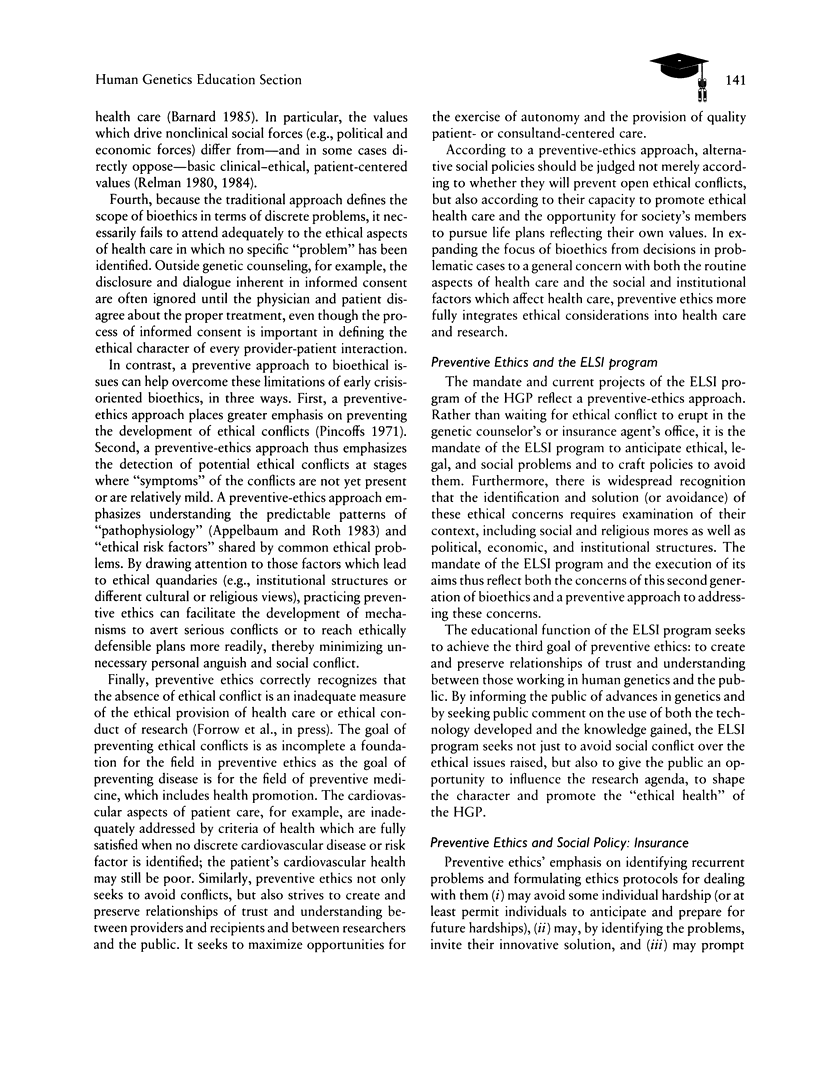
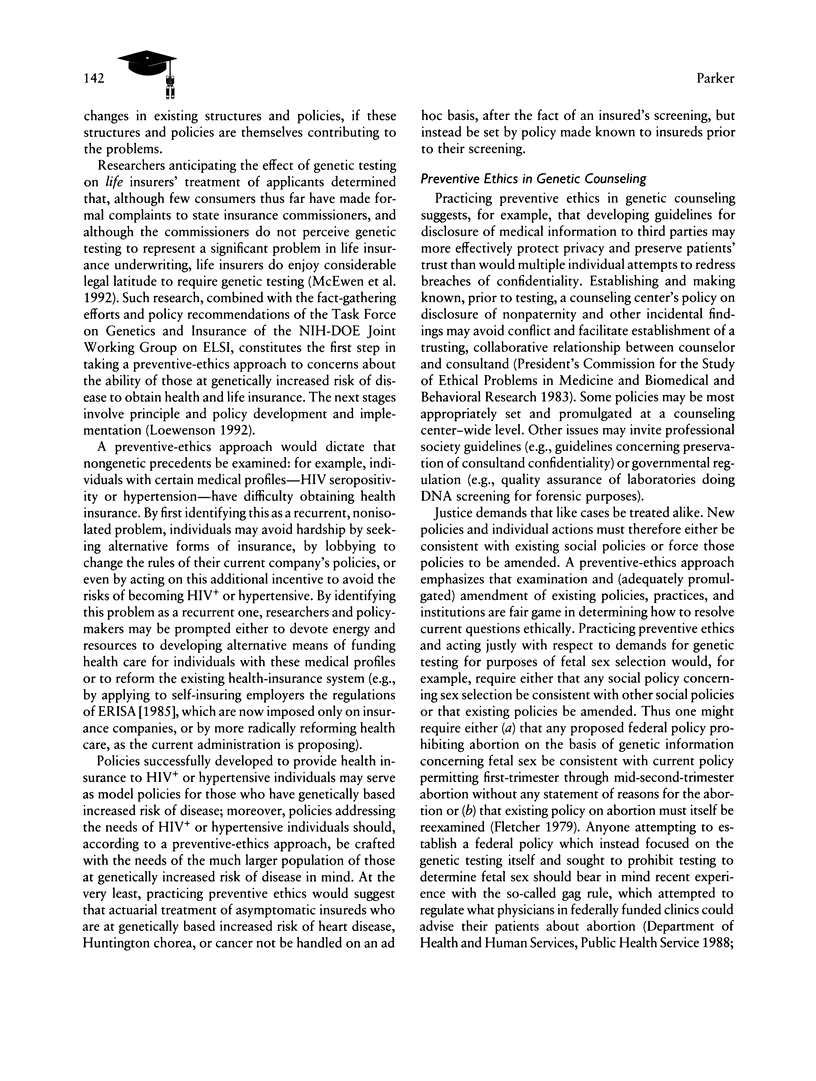
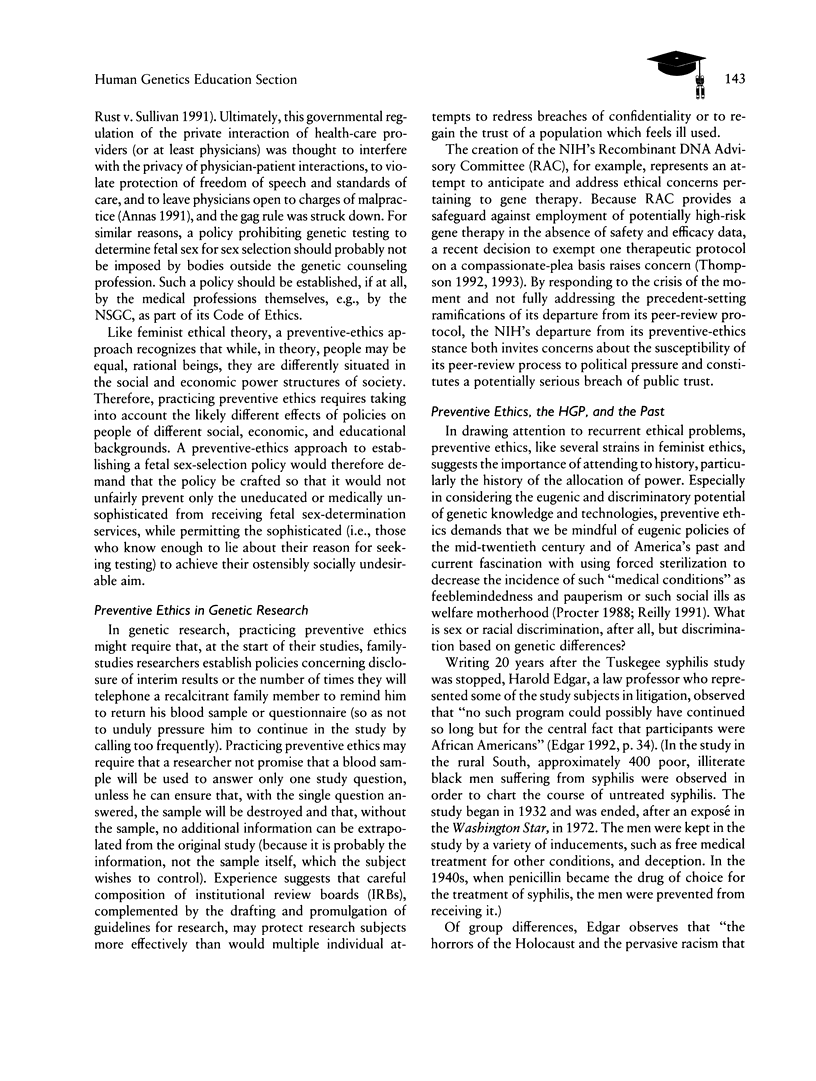
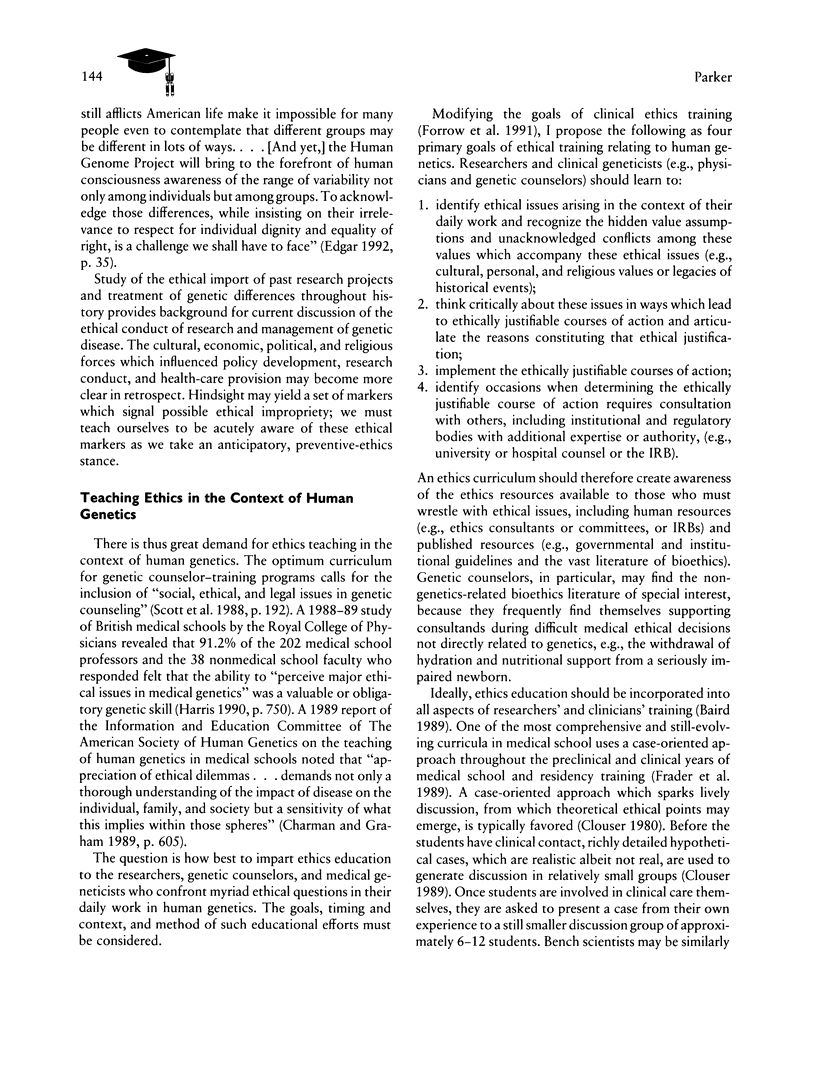
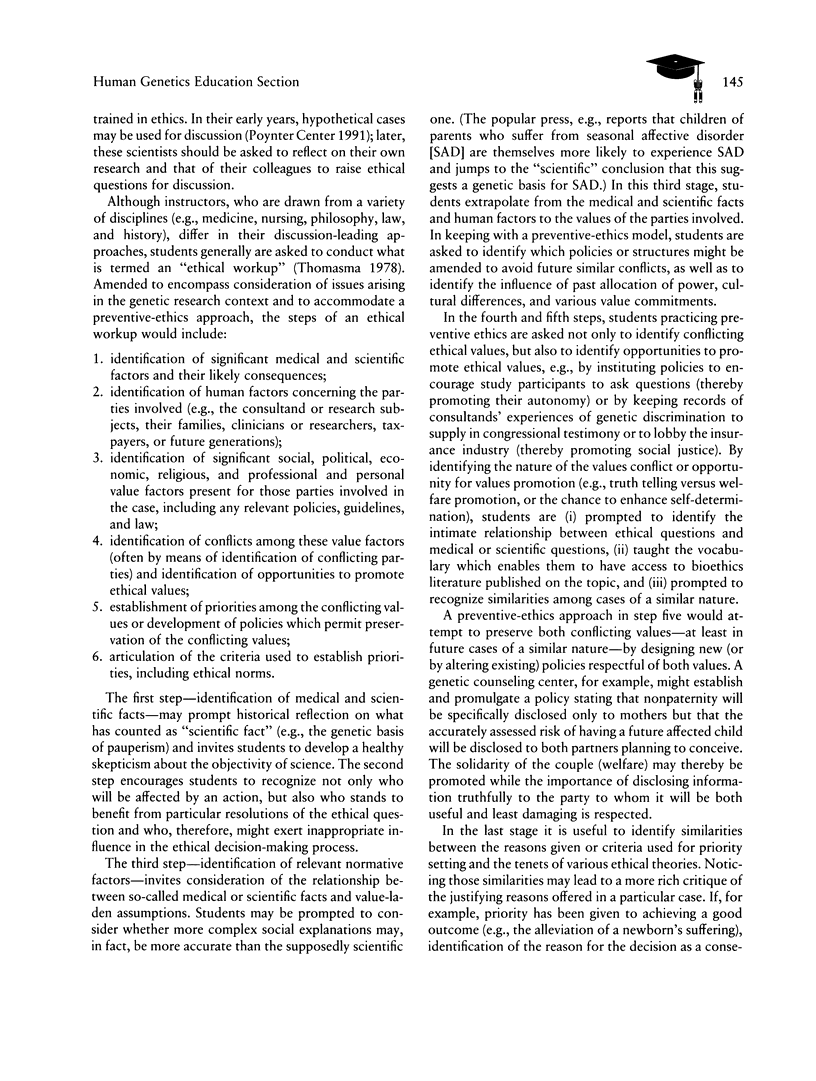
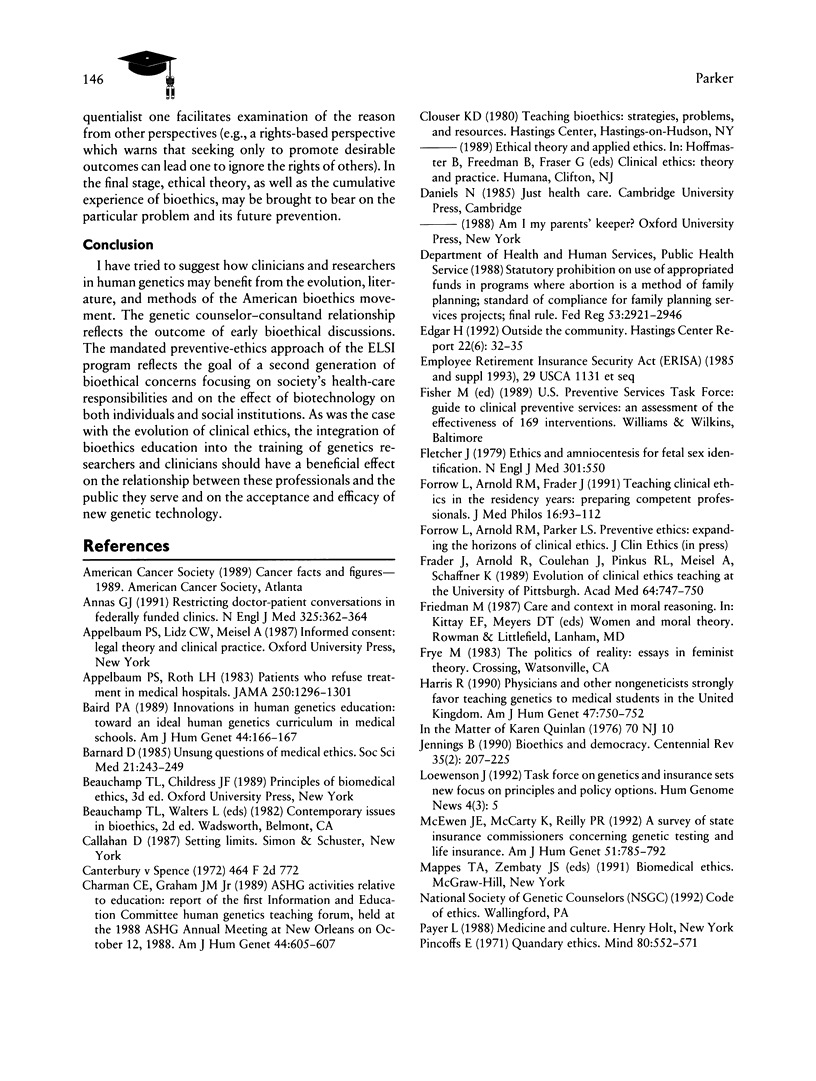
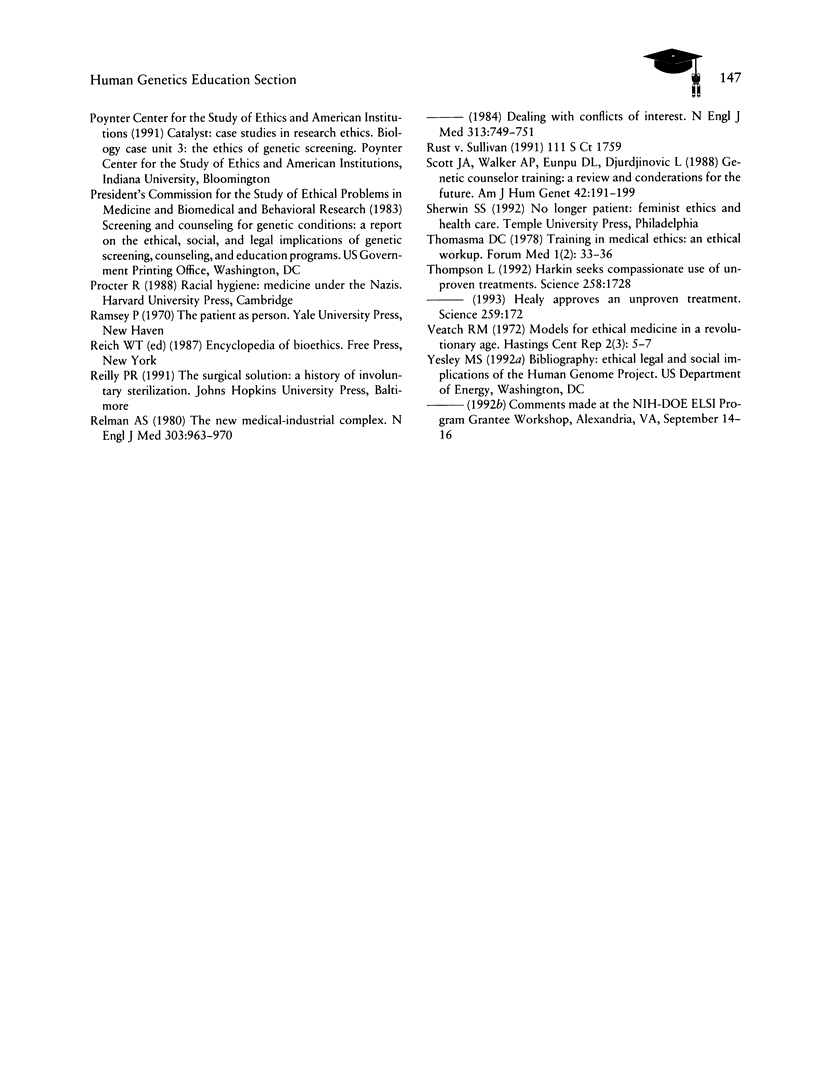
Selected References
These references are in PubMed. This may not be the complete list of references from this article.
- Appelbaum P. S., Roth L. H. Patients who refuse treatment in medical hospitals. JAMA. 1983 Sep 9;250(10):1296–1301. [PubMed] [Google Scholar]
- Baird P. A. Toward an ideal human genetics curriculum in medical schools. Am J Hum Genet. 1989 Jan;44(1):166–167. [PMC free article] [PubMed] [Google Scholar]
- Barnard D. Unsung questions of medical ethics. Soc Sci Med. 1985;21(3):243–249. doi: 10.1016/0277-9536(85)90098-x. [DOI] [PubMed] [Google Scholar]
- Charman C. E., Graham J. M., Jr Report of the First Information and Education Committee Human Genetics Teaching Forum, held at the 1988 ASHG annual meeting at New Orleans on October 12, 1988. Am J Hum Genet. 1989 Apr;44(4):605–607. [PMC free article] [PubMed] [Google Scholar]
- Edgar H. Twenty years after. The legacy of the Tuskegee Syphilis Study. Outside the community. Hastings Cent Rep. 1992 Nov-Dec;22(6):32–35. [PubMed] [Google Scholar]
- Fletcher J. C. Sounding board. Ethics and amniocentesis for fetal sex identification. N Engl J Med. 1979 Sep 6;301(10):550–553. doi: 10.1056/NEJM197909063011012. [DOI] [PubMed] [Google Scholar]
- Forrow L., Arnold R. M., Frader J. Teaching clinical ethics in the residency years: preparing competent professionals. J Med Philos. 1991 Feb;16(1):93–112. doi: 10.1093/jmp/16.1.93. [DOI] [PubMed] [Google Scholar]
- Frader J., Arnold R., Coulehan J., Pinkus R. L., Meisel A., Schaffner K. Evolution of clinical ethics teaching at the University of Pittsburgh. Acad Med. 1989 Dec;64(12):747–750. doi: 10.1097/00001888-198912000-00012. [DOI] [PubMed] [Google Scholar]
- Jennings Bruce. Bioethics and democracy. Centen Rev. 1990 Spring;34(2):207–225. [PubMed] [Google Scholar]
- McEwen J. E., McCarty K., Reilly P. R. A survey of state insurance commissioners concerning genetic testing and life insurance. Am J Hum Genet. 1992 Oct;51(4):785–792. [PMC free article] [PubMed] [Google Scholar]
- Restricting doctor--patient conversations in federally funded clinics. N Engl J Med. 1991 Aug 1;325(5):362–364. doi: 10.1056/NEJM199108013250519. [DOI] [PubMed] [Google Scholar]
- Scott J. A., Walker A. P., Eunpu D. L., Djurdjinovic L. Genetic counselor training: a review and considerations for the future. Am J Hum Genet. 1988 Jan;42(1):191–199. [PMC free article] [PubMed] [Google Scholar]
- Thompson L. Gene therapy. Harkin seeks compassionate use of unproven treatments. Science. 1992 Dec 11;258(5089):1728–1728. doi: 10.1126/science.1306067. [DOI] [PubMed] [Google Scholar]
- Veatch R. M. Models for ethical medicine in a revolutionary age. What physician-patient roles foster the most ethical realtionship? Hastings Cent Rep. 1972 Jun;2(3):5–7. [PubMed] [Google Scholar]


